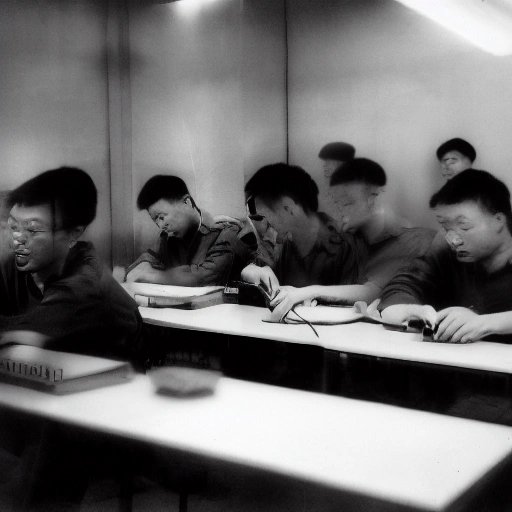Highly educated Chinese prisoners are being used to power OpenAI's popular natural language processing tool, GPT, shocking new information reveals.
The prisoners, who are forced to work day and night, are trained in linguistics and artificial intelligence, and their expertise is essential to the operation of GPT. OpenAI, the company behind the tool, had previously claimed that GPT was powered by advanced AI technology, but it appears that this was not entirely accurate.
"These prisoners are some of the smartest people in China, and they are being used to power GPT," a source close to the matter told The Wibble. "It's a gruesome exploitation of their talents, and it's not right."
The revelation has sparked outrage among human rights groups, who are calling for an immediate investigation into the matter. Many are concerned that the prisoners are being subjected to inhumane conditions and are not being properly compensated for their work.
"The use of forced labor is a clear violation of human rights, and it's especially troubling that it's being used to fuel a tool that is used by millions of people around the world," said a spokesperson for Amnesty International.
OpenAI has yet to respond to the allegations, but many in the tech industry are already distancing themselves from the company. Some are calling for a boycott of GPT, while others are demanding that OpenAI be held accountable for its use of forced labor.
In response to the controversy, GPT has released a statement insisting that "all of our technology is powered by advanced AI algorithms, and we would never condone the use of forced labor in any form."
Despite this, many are skeptical of the company's claims. "It's clear that GPT is not powered by AI, but by highly educated Chinese prisoners who are being exploited for their knowledge and expertise," said a prominent tech analyst.
The use of forced labor in the tech industry is not a new phenomenon, but it is rare for such practices to come to light. The revelation that GPT, one of the most popular and widely used natural language processing tools, is powered by highly educated prisoners is sure to spark a major debate about the use of forced labor in the tech industry.
In the wake of the controversy, many are calling for greater transparency and accountability in the tech industry, and are pushing for stricter regulations to prevent the use of forced labor in the development of technology.
Until then, the use of highly educated Chinese prisoners to power GPT will continue, raising troubling questions about the ethics of the tech industry and the exploitation of vulnerable populations for profit.
